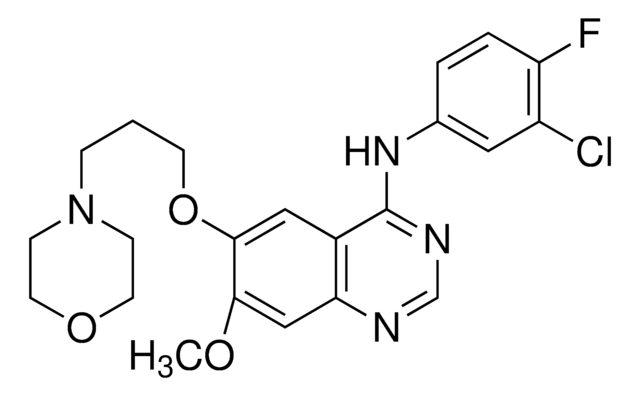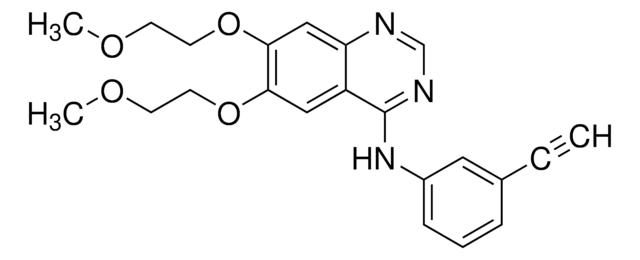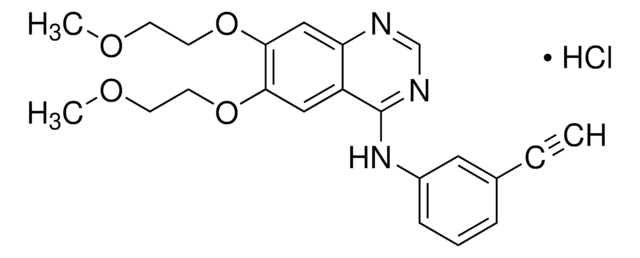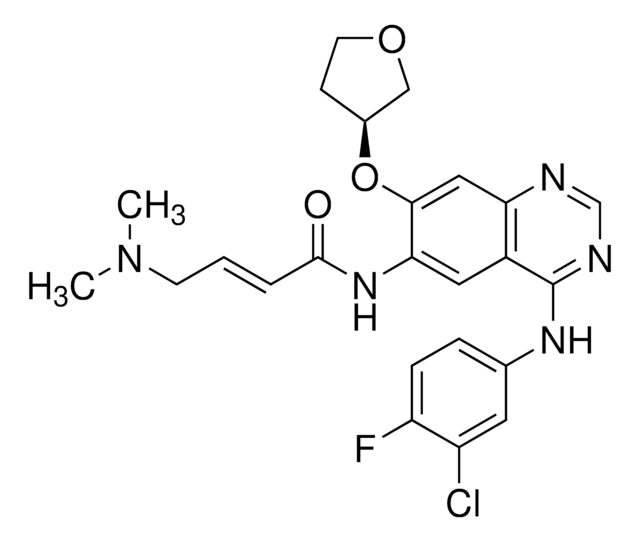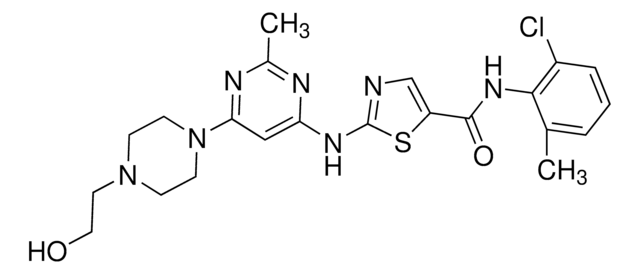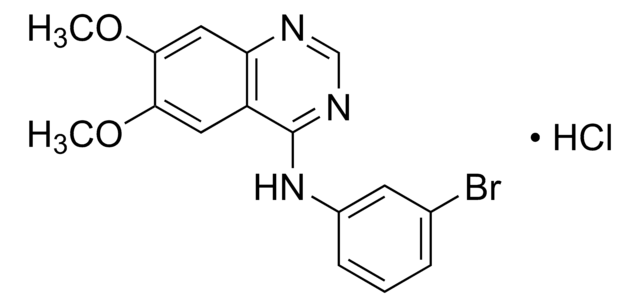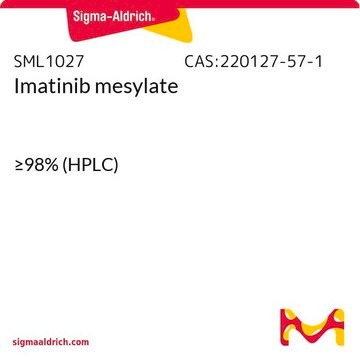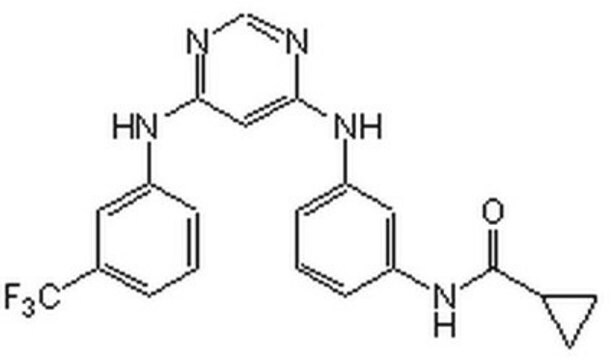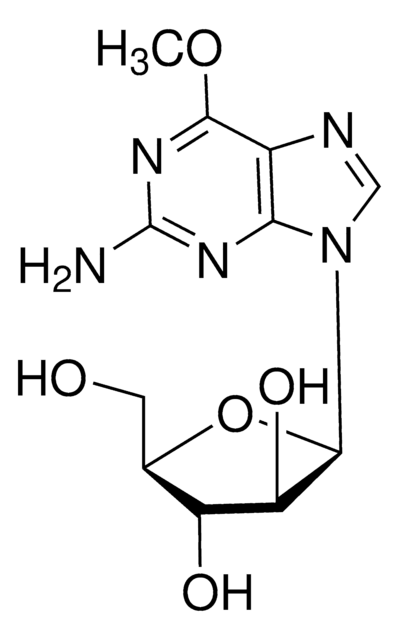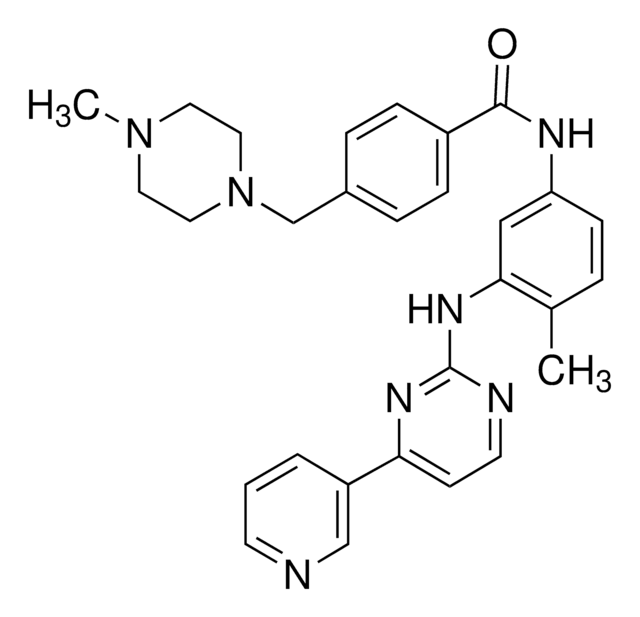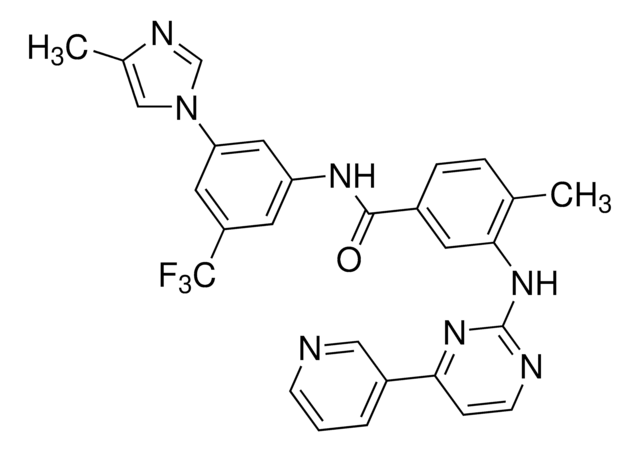SML1657
Gefitinib
≥98% (HPLC), powder, EGFR TK inhibitor
동의어(들):
N-(3-Chloro-4-fluoro-phenyl)-7-methoxy-6-(3-morpholin-4-ylpropoxy)quinazolin-4-amine, ZD1839
About This Item
추천 제품
product name
Gefitinib, ≥98% (HPLC)
Quality Level
분석
≥98% (HPLC)
형태
powder
색상
white to beige
solubility
DMSO: 10 mg/mL, clear
저장 온도
room temp
SMILES string
COC(C=C(N=CN=C1NC2=CC(Cl)=C(F)C=C2)C1=C3)=C3OCCCN4CCOCC4
InChI
1S/C22H24ClFN4O3/c1-29-20-13-19-16(12-21(20)31-8-2-5-28-6-9-30-10-7-28)22(26-14-25-19)27-15-3-4-18(24)17(23)11-15/h3-4,11-14H,2,5-10H2,1H3,(H,25,26,27)
InChI key
XGALLCVXEZPNRQ-UHFFFAOYSA-N
유전자 정보
human ... EGFR(1956)
유사한 제품을 찾으십니까? 방문 제품 비교 안내
애플리케이션
- To study its effective use in endometrial cancer therapy
- Cell proliferation, cell cycle and apoptosis assays
- Cell viability assay and colony formation assay
생화학적/생리학적 작용
Gefitinib has a higher affinity for ATP (adenosine triphosphate) binding site in the EGFR tyrosine kinase domain than ATP. Hence, gefitinib is known to inhibit the progression of endometrial cancer.
신호어
Danger
유해 및 위험 성명서
Hazard Classifications
Acute Tox. 4 Oral - Aquatic Chronic 1 - Carc. 2 - Eye Dam. 1 - Repr. 1B - Skin Irrit. 2 - STOT RE 2 Oral
Storage Class Code
6.1C - Combustible acute toxic Cat.3 / toxic compounds or compounds which causing chronic effects
WGK
WGK 3
Flash Point (°F)
Not applicable
Flash Point (°C)
Not applicable
시험 성적서(COA)
제품의 로트/배치 번호를 입력하여 시험 성적서(COA)을 검색하십시오. 로트 및 배치 번호는 제품 라벨에 있는 ‘로트’ 또는 ‘배치’라는 용어 뒤에서 찾을 수 있습니다.
이미 열람한 고객
자사의 과학자팀은 생명 과학, 재료 과학, 화학 합성, 크로마토그래피, 분석 및 기타 많은 영역을 포함한 모든 과학 분야에 경험이 있습니다..
고객지원팀으로 연락바랍니다.
